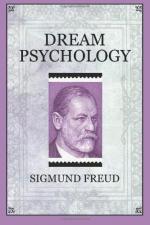Through the dream-work the dream process now gains either sufficient intensity to attract consciousness to itself and arouse the foreconscious, which is quite independent of the time or profundity of sleep, or, its intensity being insufficient it must wait until it meets the attention which is set in motion immediately before awakening. Most dreams seem to operate with relatively slight psychic intensities, for they wait for the awakening. This, however, explains the fact that we regularly perceive something dreamt on being suddenly aroused from a sound sleep. Here, as well as in spontaneous awakening, the first glance strikes the perception content created by the dream-work, while the next strikes the one produced from without.
But of greater theoretical interest are those dreams which are capable of waking us in the midst of sleep. We must bear in mind the expediency elsewhere universally demonstrated, and ask ourselves why the dream or the unconscious wish has the power to disturb sleep, i.e. the fulfillment of the foreconscious wish. This is probably due to certain relations of energy into which we have no insight. If we possessed such insight we should probably find that the freedom given to the dream and the expenditure of a certain amount of detached attention represent for the dream an economy in energy, keeping in view the fact that the unconscious must be held in check at night just as during the day. We know from experience that the dream, even if it interrupts sleep, repeatedly during the same night, still remains compatible with sleep. We wake up for an instant, and immediately resume our sleep. It is like driving off a fly during sleep, we awake ad hoc, and when we resume our sleep we have removed the disturbance. As demonstrated by familiar examples from the sleep of wet nurses, &c., the fulfillment of the wish to sleep is quite compatible with the retention of a certain amount of attention in a given direction.




